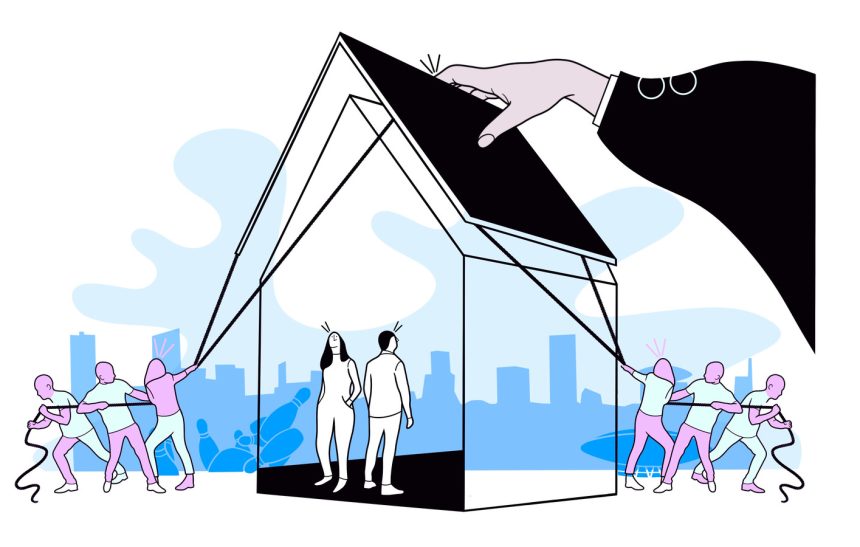Twenty years ago, the process of buying and owning a home looked quite different from what we see today. It involved physical visits to real estate agents, paper listings, and plenty of manual paperwork. The journey to homeownership was time-consuming and often stressful, with limited access to information and technology. However, as we fast forward into the future, it becomes evident that the landscape of the real estate industry is undergoing transformative changes that will revolutionize the way we buy and own homes.
One-Stop-Shop Home Ownership
One of the most significant developments that will shape the future of home buying and ownership is the emergence of one-stop-shop platforms. These comprehensive platforms aim to streamline the entire process, from searching for homes to obtaining financing and handling legal paperwork. Imagine a world where potential homebuyers can explore listings, virtually tour properties, and receive personalized mortgage rates, all in one place. This integrated approach will save time, reduce stress, and empower buyers with data-driven decisions.
Moreover, these platforms will go beyond just facilitating transactions. They will offer post-purchase services, such as home maintenance scheduling, property management, and smart home integration. The goal is to create an end-to-end experience, transforming the way homeowners interact with their properties and service providers.
Home Search and Education vs. Transacting
In the past, the emphasis was mainly on the transactional aspect of home buying and selling. Buyers would contact agents or visit open houses, relying heavily on the expertise of professionals. However, the future will shift this focus towards home search and education.
Advancements in virtual reality (VR) and augmented reality (AR) will enable buyers to explore potential homes as if they were physically present. These technologies will provide immersive experiences, allowing buyers to get a realistic feel of the property’s layout and atmosphere before making any commitments. Additionally, machine learning algorithms will analyze buyer preferences, suggesting properties that match their specific criteria and budgets.
Education will play a pivotal role in this transformation. Buyers will have access to a wealth of information, including neighborhood statistics, historical pricing trends, and property-specific insights. As a result, they will be better equipped to make informed decisions, leading to more satisfying and sustainable homeownership experiences.
The Future of Home Buying and Selling
The future of home buying and selling will be characterized by increased efficiency and transparency. Blockchain technology will disrupt traditional property records, making transactions more secure and seamless. Smart contracts will automate various stages of the buying process, eliminating the need for intermediaries and reducing transaction costs.
Moreover, fractional ownership of properties will become more prevalent. Blockchain-backed tokens will enable individuals to invest in portions of properties, diversifying their investment portfolios and democratizing access to real estate assets.
The Future of Home Improvement
As the housing market evolves, so will the approach to home improvement. Smart homes equipped with the Internet of Things (IoT) devices will become the norm, allowing homeowners to control their properties remotely. AI-driven home automation systems will learn user preferences and adjust the environment accordingly, optimizing energy consumption and enhancing convenience.
3D printing will revolutionize the construction industry, enabling the rapid and cost-effective creation of customized building components. This innovation will not only lower construction costs but also reduce waste and enhance design flexibility.
The Future of Home Selling
Selling a home will undergo significant changes as well. Virtual staging and 3D property tours will become standard practices, allowing potential buyers to envision the full potential of the space. AI-powered pricing algorithms will accurately assess property values based on market trends, historical data, and property-specific features, helping sellers set competitive prices.
Moreover, social media and digital marketing will play an instrumental role in reaching a broader audience. Targeted advertising and personalized campaigns will attract more potential buyers, ensuring a quicker and more efficient selling process.
How Close Are We to This Vision? Automated Home Valuations
Many aspects of this vision are already taking shape today. Automated home valuations, for instance, are increasingly common. AI algorithms analyze a vast amount of data to estimate a property’s value accurately. This technology reduces the dependency on appraisers, accelerates the selling process, and provides a more transparent experience for both buyers and sellers.
However, the complete realization of this future still requires overcoming certain challenges. Privacy concerns surrounding the collection and utilization of personal data need to be addressed. Additionally, the adoption of new technologies may not be uniform across all regions, leading to discrepancies in real estate practices.
What’s First: Flying Cars or Instant Home Ownership?
The idea of flying cars has been a recurring vision of the future for decades. However, before we see a world filled with flying cars, the transformation of home buying and ownership will be much more attainable.
The ongoing advancements in technology and data analytics will continue to revolutionize the real estate industry. Virtual reality and blockchain technology will become more prevalent, while artificial intelligence will drive innovation in home search, automation, and valuations. The rise of one-stop-shop platforms will create a more streamlined and seamless experience for homeowners.
In conclusion, the next 20 years hold exciting possibilities for the real estate industry. The future of buying and owning a home will be shaped by technology, data, and a renewed focus on empowering buyers and sellers with information. With continuous innovation and the adoption of transformative technologies, the home buying process will become more accessible, efficient, and enjoyable for everyone involved.












